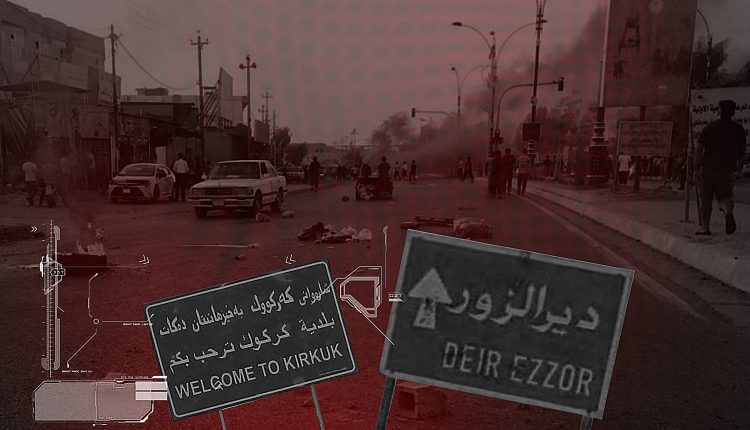In recent days, as tensions have continued, tribes other than Abu Kahwla’s have announced their support for the SDF. Meanwhile, the Combined Joint Task Force issued a statement reaffirming its commitment to supporting the SDF in the lasting defeat of ISIS and stressing the need to end the violence in northeastern Syria. A new statement was also issued this weekend calling for an end to the violence and advocating for a peaceful solution in Deir ez-Zor. US officials met with both SDF and tribal leaders to try to defuse the situation. As the unrest in Deir ez-Zor continues, there have also been recent developments in Kirkuk, where civilians have lost their lives.
Journalist Tastekin on events in Deir ez-Zor
Writing for the Duvar newspaper, researcher and journalist Fehim Tastekin commented on the events in Deir ez-Zor. Tastekin highlights the influence of Sheikh Nawaf al-Bashir, the leader of the al-Bakara tribe outside the region, writing that al-Bashir is aligned with the Syrian government. Tastekin adds that al-Bashir joined the rebellion against the government in 2011 with the support of Qatar, Turkey and Saudi Arabia.
On 1 August 2019, Syrian leader Bashar Assad called al-Bashir and said, “You stabbed the state in the back by siding with terrorists,” Tastekin notes. According to Tastekin, al-Bashir’s response to Assad was: “Mr President, we have learned our lesson, I am a soldier for you. When Deir al-Zor is liberated, I will gather thousands of fighters from our region and make up for my mistake. I will not allow betrayal”.
According to Arab sources, al-Bashir has sent his forces to the Deir al-Zor line. Tastekin also notes that al-Bashir is said to be working with the Iranian Revolutionary Guards and the National Defence Forces.
According to journalist Tastekin, Abu Khawla’s arrest is being used by the tribes to create space for themselves. Tastekin writes of his own knowledge in the following words: “According to what I have learned from PYD sources, SDF officials have sat down with Abu Khawla many times before. Each time he said, ‘Let’s do whatever you want’, but he continued to use his position for his own interests. The tribes in the area have been complaining to the SDF about Abu Khawla for some time. Abu Khawla is said to be using the name of the SDF to pressure the tribes for his own interests. The last crisis with Abu Khawla was in July last year.”
In addition, Tastekin concludes his column with the following assessment: “If the SDF withdraws from Deir al-Zor, there may be other moves to mobilize the Arab tribes in Hasakah and Raqqa. In particular, Turkey, which welcomed the tribal uprising, will waste no time in mobilizing tribal elements based in Manbij, Tabqa and Raqqa.”
Kirkuk
Another development took place in Kirkuk, where violence has erupted. The central government had decided to hand over to the KDP a building that used to be the KDP headquarters in the city, but has been used as a base for the Iraqi army since 2017. According to Reuters, KDP peshmerga fighters were on their way to the city when violence broke out with Iranian-backed militias as the peshmergas approached the building, killing four Kurds. Kirkuk, which fell under the control of the KDP in 2014, has been controlled by the Iranian-backed Hashd al-Shaabi militia, part of the Iraqi army, since October 2017.
Iran has influence in Kirkuk, as well as in Deir ez-Zor, where some tribes are loyal to the regime and Iranian-backed militias. Turkey also plays a part in this equation. The Syrian National Army (SNA), backed and funded by the Turkish state, continues to target the SDF-affiliated Manbij Military Council west of the Euphrates.

